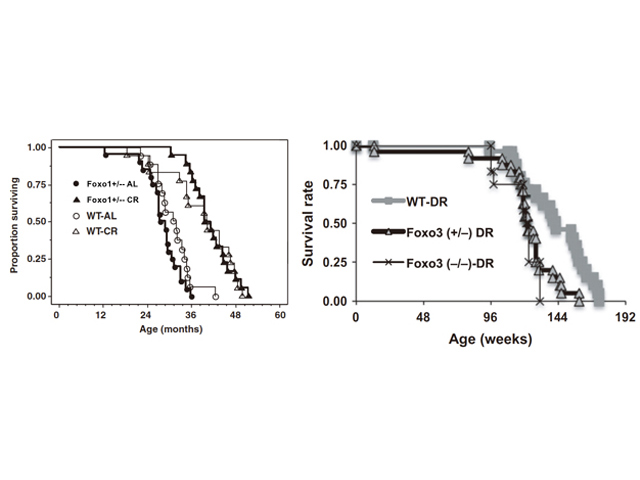| Outline |
|---|
|
In an aging society with a declining birthrate, easing the decrease in physical function of the elderly and extending their healthy living are important.
Extending a healthy life is not only connected to the improvement of quality of life of the individual, but also lowers medical and caregiving costs, and contributes to maintaining the economic foundation of society as a whole.
When seeking to extend a healthy life, it is important to have a clear understanding of the molecular mechanisms involved in the reduction of biological function and the onset of related diseases due to aging, and then to utilize this knowledge effectively. What can we do to promote the extension of a healthy life? Perhaps the development of medicine that can overcome diseases is the first factor that comes to mind. However, treating a disease after it has already emerged has limited utility for extending a truly healthy life. Recently, as an alternative to this, calorie restriction (CR) has attracted attention as the most effective method of extending a healthy life. In our laboratory, our studies focus on the effect of CR on life extension. The fact that life can be extended by CR is well known, from cases of lower-order organisms (yeast, C. elegance) to rodents (mice, rats) and primates (monkeys, humans). In addition, CR is related to a lower incidence of cancer, heart attack, and age-related diseases. However, the molecular mechanism behind this has yet to be clarified. We conduct interdisciplinary research using genetically modified mice, molecular biological techniques such as next-generation sequencing analysis, and molecular pathology analyses including in vivo and in vitro live imaging. Moreover, our laboratory team is the only group in Japan that has carried out a CR study using a rodent model over 27 years. |
| Further information |
|---|
|
http://www.med.nagasaki-u.ac.jp/pathlgy1/
|



